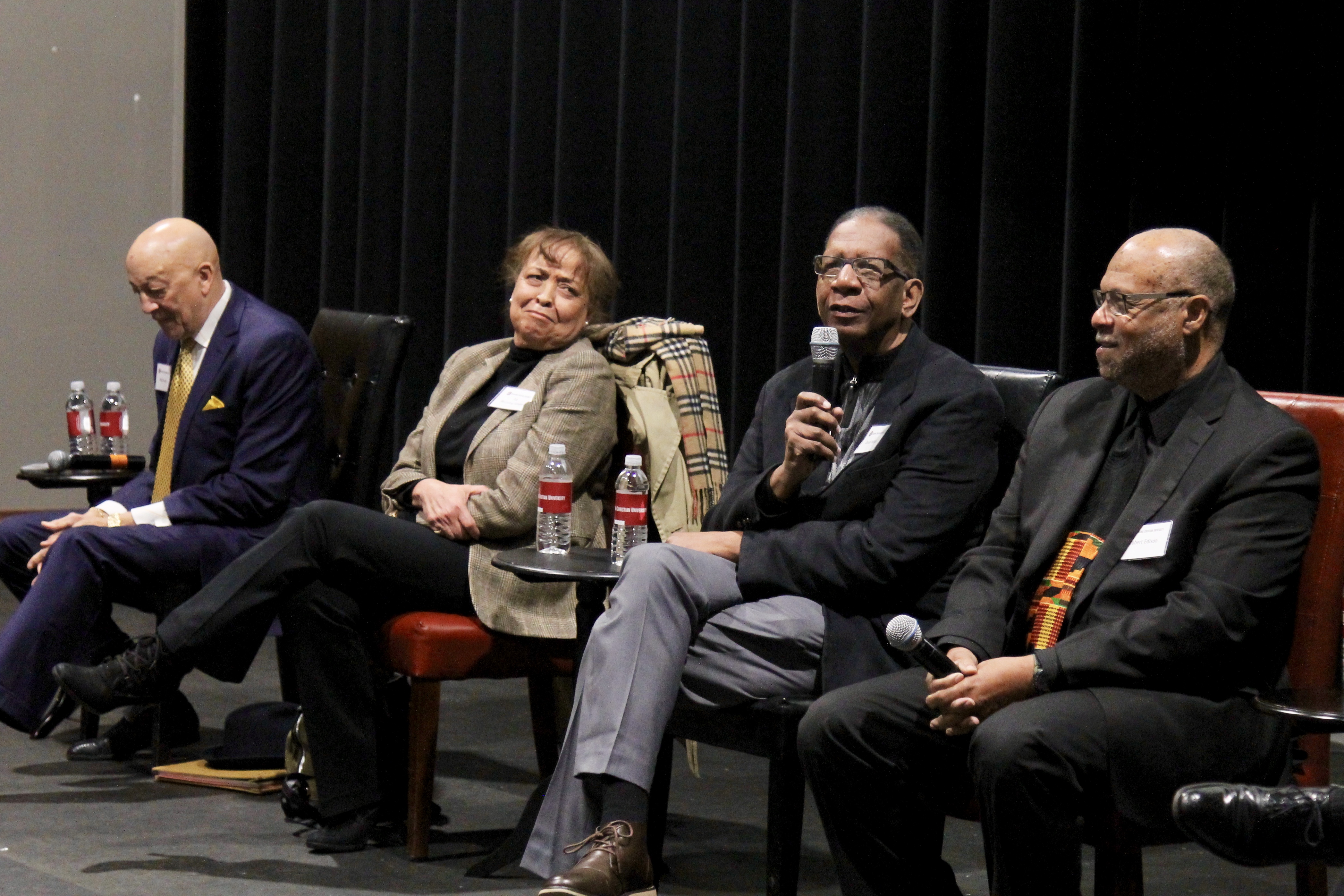On the morning of March 6, 1969, dozens of Oklahoma Christian College students, several black, flooded Benson Hall with hopes of speaking to then-president Dr. James Baird.
Among their grievances was the recent dismissal of 24 students, many of them black, accused of violating curfew rules by attending an all-night party. They felt the punishment was racially motivated, as white students caught staying out too late were not immediately removed from the college.
Instead of meeting with the students, Baird warned those in attendance they had five minutes to leave, or else they would be arrested. While a handful of students close to graduation or with difficult family situations decided to leave, the 18 who remained were handcuffed, arrested and booked into the Oklahoma County Jail on trespassing complaints. Sixteen of the 18 arrested were black.
After bailing out with the assistance of local churchgoers and university allies, the students were ordered to pack their belongings and vacate the campus within two hours. Just one of the 18 students went on to re-enroll and graduate from Oklahoma Christian.
On the 50th anniversary of their arrest and dismissal, seven of the 18 sit-in participants arrived back on the Oklahoman Christian campus for the first time yesterday, March 6, to participate in an afternoon panel discussion and be honored at an evening event in the Baugh Auditorium.
And, for the first time since the sit-in, university administration publicly apologized for their role in disrupting and altering the lives of those 18 students forever.
“I am sorry for what occurred in response to you entering Benson Hall on the morning of March 6, 1969,” President John deSteiguer said Wednesday night. “I’m sorry that there wasn’t a spirit of discussion that permitted, that prevailed your audience with the administration in that moment. I’m sorry that the campus climate made some of you feel less than welcome. You should not have not been arrested for trespass, and you should not have been dismissed from your institution.”
While recognizing the civil rights progress made at Oklahoma Christian in the past half-century, deSteiguer said there is still more to be done in regards to racial equality.
“We don’t have enough racial diversity in our administrative leadership or among the faculty and staff,” deSteiguer said. “And people like me, often with the most innocent of motives, do things or say things that make our minority students feel uncomfortable, misunderstood or unwelcome.”
According to sit-in participant Ron Wright, the first step in making racial progress and ensuring history does not repeat itself is to place people and faith before legality or past precedent.
“All of our schools have had problems because we were politicians first and Christians decades later,” White said in a video played at Wednesday night’s event. “Well, if you would just follow the principles of the book, you would have never been wrong.”
This was a message Wright tried to share with Baird exactly 50 years ago, according to deSteiguer.
“The president brought Ron into his office by himself,” deSteiguer said. “He (Ron) said, ‘This is your opportunity to show the world how Christians act by talking to us and by forgiving the students who were dismissed yesterday.’ In response, Ron was told if the students didn’t leave, they would be arrested for trespass and dismissed from OCC.”
While compassion in the president’s office was seemingly lacking, other faculty members stepped up to assist the students.
As word of the students’ arrest spread, longtime music professor Harold Fletcher and a group of local churchgoers raised money to post the students’ bail. According to an archived Daily Oklahoman article, the students were bailed out at $20 each—approximately $140 today, adjusted for inflation.
“I believe that he technically was not the one who bailed them out, but he was a central figure in getting the students bailed out,” Harold Fletcher’s son, professor of music John Fletcher, said in an interview Tuesday, March 5. “My understanding on this is that he was advised by some of his close friends that the university might hold him accountable in a negative way if he was the one who actually paid the money to bail the students out. But, he was a mover and shaker in them getting out.”
According to those who knew him, Harold Fletcher was always a strong advocate for civil rights. During his Wednesday night address, deSteiguer said Harold Fletcher and several choir members stood up and left a restaurant after management informed a black student, George Shirley, he was not allowed to eat inside.
“He was viewed by the black students at that time as a friend, as a strong advocate for them,” John Fletcher said. “They felt comfortable and welcome coming to our home. They would have dinner with us and spend time with us. They absolutely felt that he was an ally for them.”
Following addresses from deSteiguer and multicultural coordinator Gary Jones, all participants were presented with presidential certificates of distinction honoring the “exceptional courage” they showed by standing up for their peers when they knew the consequences could be devastating.
“Oklahoma Christian University is a better place because of the actions and the sacrifice of the students involved in the 1969 Benson Hall sit-in,” deSteiguer said.
Closing the night in prayer, sit-in participant Don Wilson asked for continued unity and racial progress.
“I pray that we can stand together for one cause and build this university to a place where people can live together, work together, regardless of their nationality, regardless of their race and even regardless of their religious traditions,” Wilson said. “Because the only way we can make change is by the way that we live.”
Correction: This article was updated on the afternoon of Thursday, March 7 to correct a factual error.












Be First to Comment